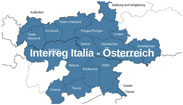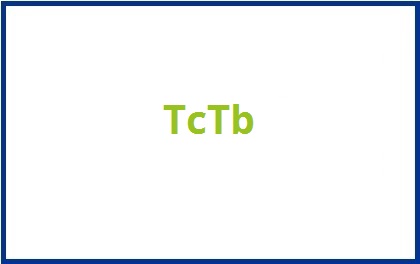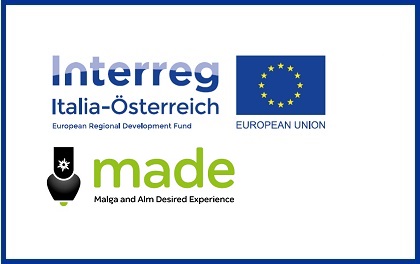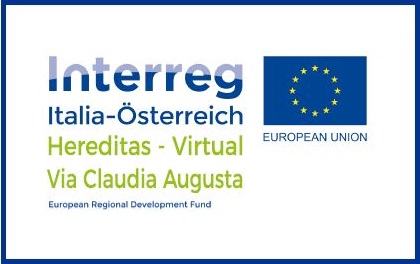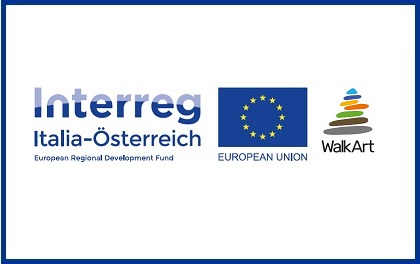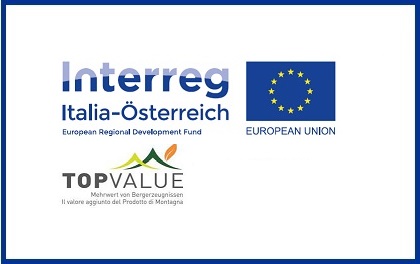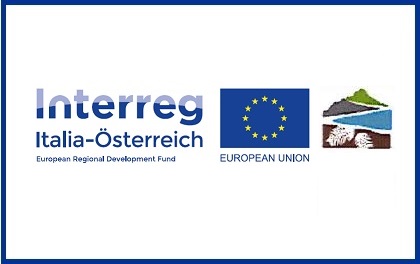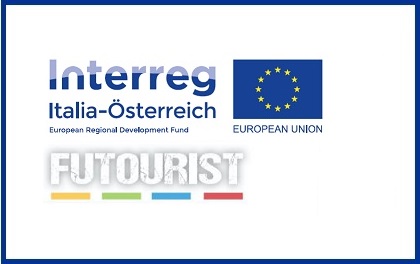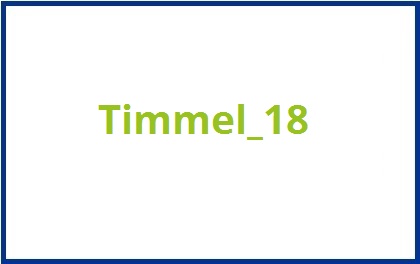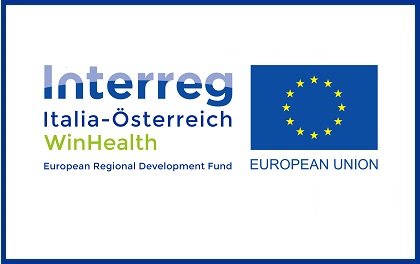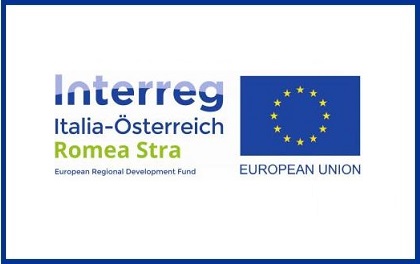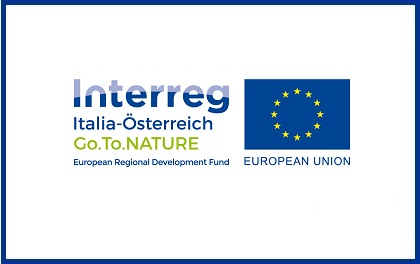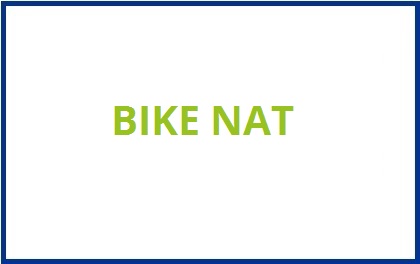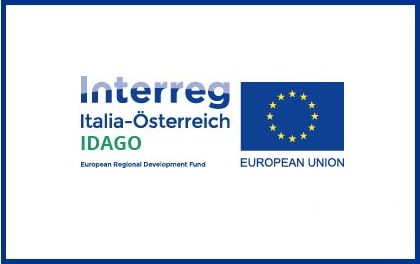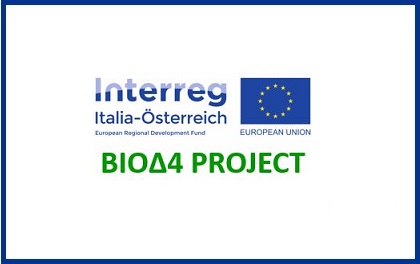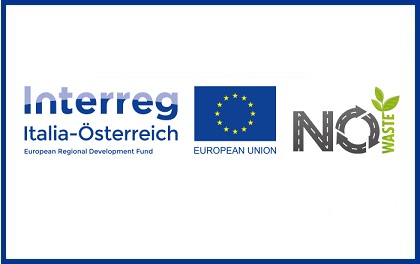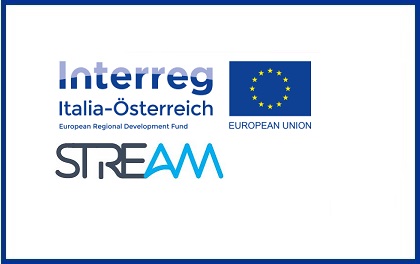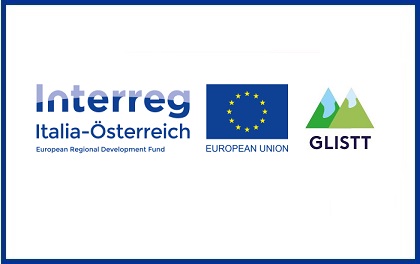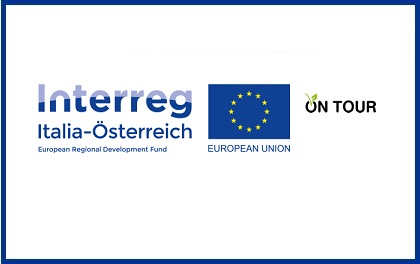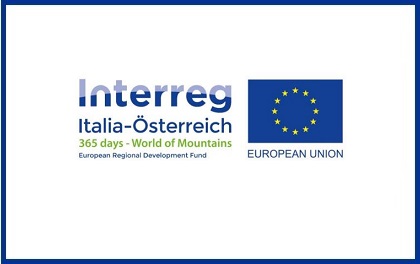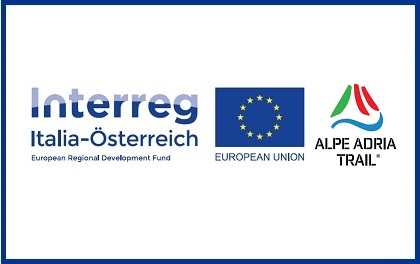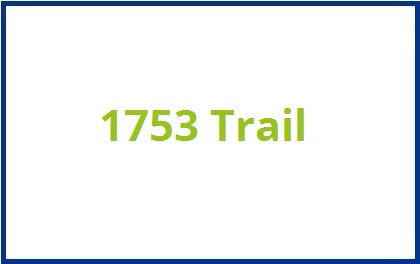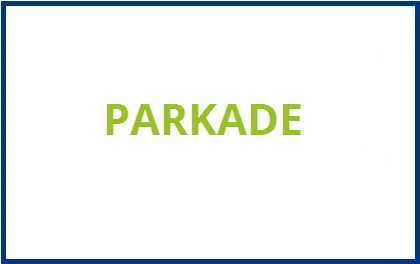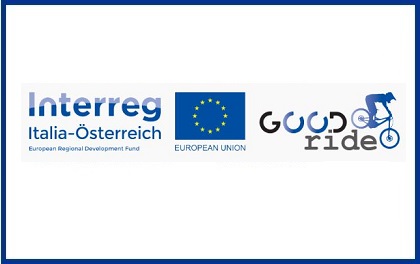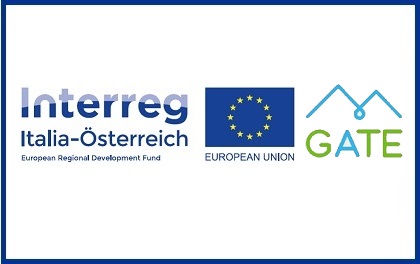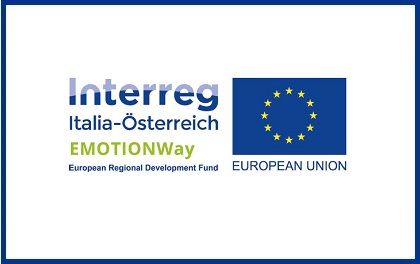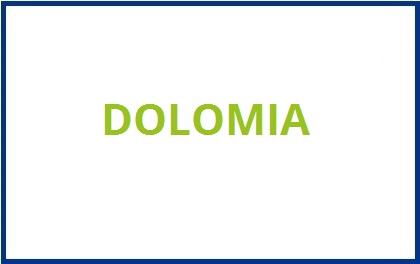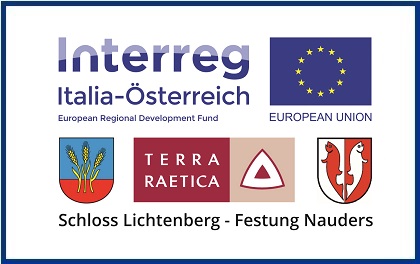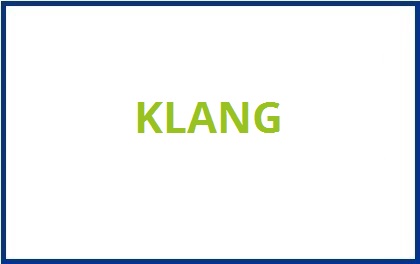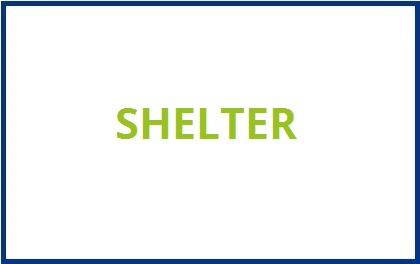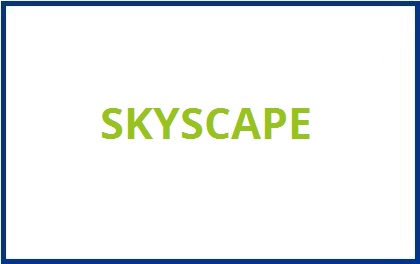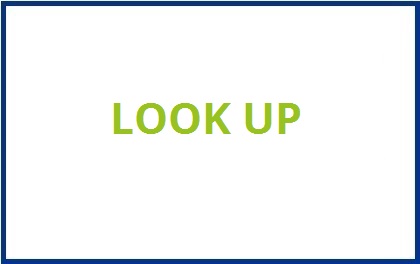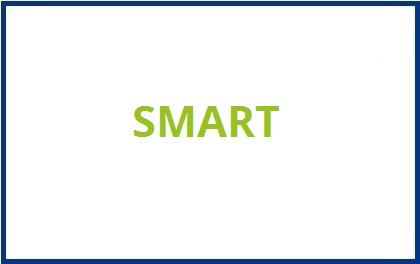Axis 2 - Nature and culture
Main challenges
The programme region is characterised by a rich cultural life and a diverse, unique natural environment. Over large areas, the Alps determine the natural and cultural conditions of the programme region and continue to be home to the greatest biological diversity in Europe. This rich natural and cultural heritage is not only inextricably linked to the high quality of life of the population, it also forms the economic basis of life for the population. In order to preserve the unique natural and cultural heritage of the region and thus attract tourists to the programme region, tourism, as one of the most important economic sectors in the cooperation area, should play a responsible role in the protection and enhancement of the natural and cultural heritage: The aim is to promote soft tourism, focusing on the balance between the use and protection of the cultural and natural heritage. The following concerns are at the heart of this axis:
- Protection of natural and cultural resources and their sustainable use to increase the tourist attractiveness of the area and the preservation and enhancement of cultural sites;
- Minimising the environmental impact of transport due to tourism, including reducing seasonality to reduce peak loads.
Measures to improve bio- and geodiversity and Natura 2000 sites in the cooperation area will also be sought. To this end, the numerous protected areas (nature and national parks) will be more closely networked and the development of joint strategies and concepts will be optimised across borders. The following objectives will be pursued, among others:
- Raising awareness of biodiversity to ensure landscape diversity in the border region;
- Joint protective measures, recommendations for action or coordinated guidelines for the protection of ecosystem services.
In this axis, 33 projects with a total budget of 32,679,082.16 euros were approved in three dedicated calls.
 TcTb
TcTb

TcTb
Torri e castelli
Heinfels castle, the Magnifica Comunità di Cadore, and Feltre Castle embody the ancient history and civil power of East Tyrol, Cadore, and the Feltrino area. The three buildings thus represent the bastions of cultural identity and are a tourist attraction also thanks to their strategic location. The renovation works all differed due to the three locations’ varying state of preservation and accessibility. The works will highlight the locations and make them accessible, as well as allowing them to host exhibits showcasing local history. Renovation and consolidation works carried out with this cross-border project will also enable a comparison of different building approaches and techniques; local vocational schools will also be involved in workshops, practical renovation techniques exercises, as well as visits to the building sites. The promotion of the buildings and their renewed access for locals and tourists will be at the heart of a joint communication campaign which will highlight the building elements and less well-known architectural features.
Project partners
- Lead Partner (TIR) Museumsverein Burg Heinfels
- Project partner 1 (VEN) MAGNIFICA COMUNITA' DI CADORE
- Project partner 2 (VEN) Comune di Feltre
Project budget
1.924.654,86 Euro
Project duration
01.09.2016 - 28.02.2019
Project website
 TR_MOBIL
TR_MOBIL

TR_MOBIL
Terra Raetica Mobil
Bicycle tourism has been increasing in popularity for years as an ecological way to go on holiday and get around as well as the ideal family/leisure activity for enjoying the great outdoors. Extensive international cycling routes are being constructed across Europe and are being used by more and more cyclists. Terra Raetica is rich in history and features the Vinschgau, Engadin, Val Müstair and the Tyrolean highlands. The region has always been a major route between the north and south - an honour which it still enjoys to this day. Cyclists use these routes to cross the alps on long cross-country bike trips, such as the Via Claudia Augusta bike trail, the Etsch bike trail or the Innradweg, which all pass through the Terra Raetica. The goal of the project is to ensure the availability of bicycles outside of the public trails and ensure the route can continue to be enjoyed by thousands of cyclists looking to experience our sites and cultural heritage. This joint, cross-border project is aimed at diversifying the local economy, increasing the attractiveness of the border area and reinforcing the competitiveness of the region. The main activities include structural enhancements to increase safety, the establishment of cross-border bike shuttles and joint communication efforts for public relations and raising awareness. This cross-border collaboration is set to bring added value to the entire Terra Raetica region.
Project partners
- Lead Partner (TIR) Tourismusverband Tiroler Oberland
- Project partner 1 (BZ) Gemeinde Mals
Project budget
1.877.204,00 Euro
Project duration
01.06.2016 - 31.05.2019
 MADE
MADE

MADE
Malga and Alm Desired Experience
The main objective of the project MADE is to develop a cross-border system including the malghe (Alpine huts) as well as the “green” hiking and cycling routes in Friuli Venezia Giulia (Italy) and Carinthia (Austria), with the aim of preserving cultural and natural heritage, strengthening common cross-border identity, enhancing and increasing the seasonality of the tourist offer, involving and supporting local production as well as increasing employment and strengthening sustainable mobility among the bordering regions. Attention will be focused on safeguarding the environment and protecting biodiversity through the valorisation of the cultural heritage and the traditional Alpine agriculture. This project intends to encourage the development of tourism, which has not yet reached its full potential, by involving the malghe and combining it with top-quality local products. Typical Alpine agricultural activities, linked to the natural wealth of the area, will favour the improvement of the current tourist offer, not only in terms of gastronomic tourism, but also of sports, wellness, cultural tourism. The project idea will be developed by means of the enhancement of the value of malghe and pastures, of the various accommodation facilities, of the typical gastronomic offer, sustainable crossborder mobility and joint promotion as well as through the valorization of the natural context through communication activities as e.g. interactive installations and info-points.
Project partners
- Lead Partner (FVG) Consorzio di Promozione Turistica del Tarvisiano, di Sella Nevea e di passo Pramollo
- Project partner 1 (KAR) Comune di Hermagor-Pressegger See
- Project partner 2 (FVG) Agenzia regionale per lo sviluppo rurale (ERSA)
Project budget
1.436.354,59 Euro
Project duration
01.02.2017 - 31.07.2019
Project website
 HEREDITAS
HEREDITAS

HEREDITAS
Hereditas, Virtual Via Claudia Augusta
The roman Via Claudia Augusta (VCA) runs through Germany, Austria and Italy along an important transnational route by reasons of landscape, cultural and historical nature. These resources do not seem yet properly enhanced, so being able to act, potentially, as an incentive for crossborder tourism that, currently, is one of the most important economic sectors in the project area. The project actions will therefore affect the protection and promotion of existing but not well-known resources and cultural sites, in order to increase the tourist attractiveness of the area by reducing its seasonality and strengthening a common historical identity. The key idea of the project is to build a Virtual Museum in order to present the most valuable cultural heritage along the VCA through digital services and facilities accessible by tourists and citizens, both at home and along the entire route. It is expected to set up a working group of experts for specific researches, to find the information of greatest relevance and their enhancement through different methods, including digital processing. It is also considered the setting up of an museum area dedicated to Roman time connected to the Virtual Museum, the purchase of displays for finds, as well as the improvement of the VCA path according to the principles of quality (pre-certification). The project results will be communicated through website, apps, and other material.
Project partners
- Lead Partner (VEN) GAL Prealpi e Dolomiti
- Project partner 1 (VEN) Comune di Feltre
- Project partner 2 (VEN) Associazione "Via Claudia Augusta"
- Project partner 3 (TIR) Verein Via Claudia augusta Tirol
Project budget
1.549.942,50 Euro
Project duration
01.01.2017 - 30.04.2020
Project website
.
 WalkArtFvg
WalkArtFvg

WalkArt
Riscoperta delle antiche vie di pellegrinaggio fra Carinzia e Friuli Venezia Giulia: l’arte del cammino
The FVG and Carinthia are crossed by ancient pilgrimage routes which lead to Santiago, Rome and Jerusalem. The importance of these itineraries has not yet been valorised, a connection between these locations is missing, along with a sustainable package tours and an adequate cross-border signage system. The project stems from the idea of enhancing the value of these routes and their varied natural and cultural heritage, preserving its attractiveness and uniqueness by creating tourist itineraries as an alternative to mass tourism solutions. objective of this project is to safeguard and enhance the value of the natural and cultural heritage by creating a network to connect these routes in order to provide a new type of sustainable cross-border tourism offer accessible to everyone, even to disabled tourists; this involves the creation of integrated actions, services and information, cross-border package tours, the setting up of reception rooms and to improve accessibility to tourist destinations and places of cultural interest situated along the routes. Dissemination activities: PR activities, brochures, leaflets, two events: in St. Veit and Colloredo. Impact: include the reduction of the territorial asymmetry of tourist attraction, by means of the enhancement of slow tourism and theme-based tourism packages with a higher added value, economic growth with the number of tourists who visit it as well as the number of sites of natural and cultural interest which have been visited.
Project partners
- Lead Partner (FVG) COMUNITA' COLLINARE DEL FRIULI
- Project partner 1 (FVG) PromoTurismoFVG
- Project partner 2 (KAR) RM REGIONALMANAGEMENT KARNTEN:MITTE
Project budget
1.258.210,89 Euro
Project duration
01.01.2017 - 31.07.2019
Project website
 TOP-Value
TOP-Value

TOP-Value
Il valore aggiunto del Prodotto di Montagna
The gradual abandonment of traditional activities and the difficulties faced in promoting local productions, are challenging mountain cultural and natural heritage and thus the touristic attractiveness of the area. The project aims to support mountain food chains using the policy instruments provided by the optional quality term "mountain product" as defined by EU Reg. 1151/12 and 665/14. The term has not been implemented yet in the transboundary area and its uptake could be beneficial to both producers and consumers by adding value and traceability to local mountain products. Project actions will target regional case-studies in order to identify and suggest solutions to barriers for the adoption of the optional quality term. The innovative approach consists in empowering the "mountain products" by identifying and quantifying ecosystem services (e.g biodiversity, landscape aesthetics, animal welfare, emissions’ regulations) linked to the natural and cultural assets of the area but which are currently hidden into a broader food quality concept. The identification and quantification of ecosystem services allows not only to support high-quality products also in terms of social and environmental sustainability, but also to meet the expectations of tourists and consumers by adopting effective communication strategies on traditional mountain products that contribute to a lively and attractive transboundary area.
Project partners
- Lead Partner (KAR) Kammer für Land- und Forstwirtschfat in Kärnten
- Project partner 1 (KAR) eb&p Umweltbüro GmbH
- Project partner 2 (FVG) Agenzia regionale per lo sviluppo rurale (ERSA)
- Project partner 3 (FVG) Università degli studi di Udine
- Project partner 4 (IT) Regione del Veneto - Sezione Competitività
- Project partner 5 (IT) Università degli Studi di Padova
Project budget
1.552.044,09 Euro
Project duration
01.01.2017 - 30.06.2019
Project website
 GeoTrAC
GeoTrAC

GeoTrAC
Geoparco Transfrontaliero delle Alpi Carniche
The project provides for the creation of a cross-border Carnic Alps geopark, to valorise the geological heritage and elaborate strategies for sustainable development of the involved area in order to reinforce the awareness about the value of natural heritage, promote the balance between growth and protection of the environment as well as scientific culture, and enhance the touristic attractiveness of the involved regions. To this end, the project will entail the following actions: - creation of a cross-border working group; - scientific research regarding the whole area involved in the project; the results will be used for travelling exhibitions as well as for scientific and educational publications; - info-point, use of multimedia technologies; - creation or renewal of (cross-border) geologic itineraries; - creation of educational paths and of a "guide of guides" in order to provide proper training - preparation of a shared programme of educational activities and events in order to promote geological knowledge and increase visits to the geopark; -drafting and managing of a communication and marketing plan for the promotion of the cross-border geopark; - production of publications and videos (documentaries); - creation of a GIS system supporting the territorial management of the geopark; - study of organization models for the consolidation of the geopark.
Project partners
- Lead Partner (FVG) Comune di Udine - Museo Friulano di Storia Naturale
- Project partner 1 (FVG) Comunità Montana della Carnia
- Project partner 2 (KAR) Geopark delle Alpi Carniche
- Project partner 3 (FVG) Regione autonoma Friuli Venezia Giulia - Direzione centrale ambiente ed energia - Servizio geologico
- Project partner 4 (BZ) Azienda Musei Provinciali
- Project partner 5 (FVG) Comunità Montana del Gemonese, Canal del Ferro e Val Canale
Project budget
1.579.430,00 Euro
Project duration
01.01.2017 - 30.06.2019
Project website
 FUTOURIST
FUTOURIST

FUTOURIST
Promozione del patrimonio naturale e culturale alpino attraverso iniziative open air sportive, turistiche e sostenibili
L’area di progetto IT-AT è caratterizzata da una varietà naturale alpina unica e particolarmente sensibile ai cambiamenti climatici sia in estate che in inverno. Deve essere quindi prioritario l’impegno degli operatori del territorio e del turismo, che è il settore economico più rilevante, nell’assumere un ruolo di responsabilità nella tutela e valorizzazione del patrimonio naturale e culturale, favorendo la conservazione dell’asset naurale assieme alla sua fruizione soft, e incrementando le presenze di turisti europei ed extraeuropei. FUTOURIST, applicato in località alpine meno note e sconosciute al turismo di massa che si prestano perfettamente a nuovi format turistici,sperimenta un business plan comune in 3 territori (Provincia di Belluno,Asiago,Tirolo) per promuovere un tipo di turismo "soft", emozionale e tematico, distante dallo sfruttamento di massa delle infrastrutture montane(es: impianti di risalita) e che va di pari passo con la cura e conservazione dei preziosi gioielli della natura e con l'educazione ambientale. Con la tutela del biotopo e l'educazione ambientale infatti si creano ambienti in cui l'uomo ha la possibilità di ricaricare le sue energie emozionali e mentali sperimentando così benessere fisico e mentale. Un turismo CO2-free, in grado di intercettare l'interesse di una quota sempre maggiore di visitatori stranieri, in particolare presso mercati emergenti che mostrano interesse verso modalità di fruizione della montagna legate ad attività outdoor.
Project partners
- Lead Partner (VEN) CONSORZIO DOLOMITI
- Project partner 1 (TIR) Amt der Tiroler Landesregierung - Tiroler Umweltanwaltschaft
- Project partner 2 (VEN) Comune di Asiago
Project budget
1.035.654,25 Euro
Project duration
01.11.2016 - 30.04.2019
Project website
.
 Timmel_18
Timmel_18

Timmel_18
Timmel_Transit_2018: Rotte transfrontaliere e valorizzazione culturale della regione del Passo Rombo nell'ottica di una crescita sostenibile
The project's main activities are: An active examination of the region's natural and cultural heritage; an enhancement of the "gentle tourism" offerings in the lower Passiria and Ötz Valleys in the context of sustainable growth; and the implementation of trans-boundary connections by foot and by mountainbike. The new mountainbike trail – one of the most-beautiful routes over the Alps – will be a unique component of this. A museum facility at the pass will visualize its 10,000-year history as an important transit route and augment the already-existent pass museum on the Austrian side (which presents only the history of road construction in the Ötz Valley). An additional small building on the Italian side will complete the museum concept. Both small structures will be connected by a circular path. Furthermore, the various different historical anniversaries being celebrated in 2018 will represent an opportunity for developing and marketing the touristic offerings: the 100th anniversary of the end of WW I; the 50th anniversary of the High-Alpine Road on the Italian side; and the 20th anniversary of the Schengen Treaty. The importance of this transit route for regional identity and trans-boundary cultural communication are more topical than ever. The development of products and offerings should stimulate in particular the summer season, provide new impetus to this outlying border area, and help promote nature-based, environmentally friendly tourism.
Project partners
- Lead Partner (BZ) Comune Moso in Passiria
- Project partner 1 (TIR) Oetztal Tourismus
Project budget
1.672.306,00 Euro
Project duration
01.01.2017 - 30.06.2019
 WinHealth
WinHealth

WinHealth
Valorizzazione sostenibile dei potenziali turistici salutari nel turismo alpino invernale
Winter tourism is a significant economic factor and an important employer in the program area and especially in rural Alpine regions. Although, there is an urgent need for the diversification of winter tourism products to react to the already noticeable impacts of climate change and altering customer demands. Therefore, Alpine regions have to develop innovative and environmentally responsible tourism products and services to secure the economic efficiency and competitiveness of regions & SME in the program area. Evidence-based health tourism offers a variety of strategic development opportunities for a sustainable economic utilization of Alpine natural and cultural resources in the winter season. Current health tourism offers predominantly focus on summer holidays, whereas the potential of health tourism winter products have not yet been exploited. The project WinHealth aims at a sustainable valorization of the health tourism potential in terms of Alpine natural & cultural resources. In cross-border cooperation, innovative economic value chains & business models will be developed, which shall not replace snow-related offers, but complement them. A broad-based cross-border qualification & know-how transfer initiative stimulates SME-& destination-driven innovation in terms of health tourism and strengthens their knowledge base. In this way, health tourism is positioned as strategic development factor for the diversification of Alpine winter tourism offers in the program area.
Project partners
- Lead Partner (SBG) Paracelsus Medizinische Privatuniversität
- Project partner 1 (TIR) Private Universität für Gesundheitswissenschaften, medizinische Informatik und Technik (UMIT)
- Project partner 2 (FVG) PROVINCIA DI UDINE
- Project partner 3 (BZ) IDM Suedtirol - Alto Adige
- Project partner 4 (TIR) Tiroler Zukunftsstiftung
- Project partner 5 (SBG) Salzburg University of Applied Sciences
- Project partner 6 (BZ) Associazione Turistica Renon
- Project partner 7 (BZ) Bressanone Turismo Società Cooperativa
Project budget
1.923.454,90 Euro
Project duration
01.09.2016 - 28.02.2019
Project website
 Romea Stra
Romea Stra

Romea Stra
Itinerario transfrontaliero di fede e cultura - Romea Strata
The project aims at valorise and protect the cross border territories, focussing on the historic religious itinerary called Romea Strata. Indeed a promotion strategy of the historic, religious, cultural and common heritage in Italy and Austria will be developed. Local communities will be involved through the endorsement of excellences related to handicrafts, nature, wine&food. The project partners: Schio Municipality, Udine Province, Pilgrimage Office-Vicenza diocese and Bildungshaus Osttirol will implement together a tourist cross border marketing based on user friendly ICT tools. For this reason, the competencies of the operators of the territories will increase, thus letting to an employment growth and an increase of tourist flows in the involved areas. Partners, who are strongly motivated, will jointly develop all project activities, thus obtaining sustainable and replicable results even beyond the project end. Indeed, the project network will be strengthened by extending it to new partners, while the web site and social network pages will be updated with news and events to promote the itinerary continuosly. Eventually, the investment on the signals will guarantee the longlasting visibility of the project itinerary, whereas the benefits of the tourist flow increase and the improved cultural transnational identity will be clearer after a while.
Project partners
- Lead Partner (VEN) Comune di Schio
- Project partner 1 (FVG) PROVINCIA DI UDINE
- Project partner 2 (VEN) Ufficio Pellegrinaggi - Diocesi di Vicenza
- Project partner 3 (TIR) Bildungshaus Osttirol
Project budget
841.710,00 Euro
Project duration
02.01.2017 - 31.12.2018
Project website
 GoToNATURE
GoToNATURE

GoToNATURE
GOvernance, TOurism and NATURE
The programme area boasts a wide variety of natural (e.g. national parks, landscapes etc.) and cultural as well as historical attractions. Moreover, the project area includes less known places with interesting cultural and natural peculiarities for tourism attractiveness. From a cross-border perspective, initiatives for joint planning and management of tourism are rare, except for few remarkable cases (e.g. Alpine Pearls). The project area needs to develop a vision of the territory as a common economic asset to protect and enhance. Therefore, the project overall objective is to create a model for territorial development based on the sustainable use of less known tourism destinations, their natural and cultural heritage. To achieve this, the project will: 1) Improve local tourism governance by involving citizens and economic actors in a common concept of tourist destination management. To this aim, a model for tourism governance will be produced. 2) Incorporate the principles of the "European Charter for Sustainable Tourism in Protected Areas" (ECST) into the design of innovative tourism products. To achieve this, the project will first develop a toolkit for sustainable tourism and then apply it to pilot actions. 3) Design a high-quality tourism offer integrating active, wellness, natural & cultural vacation with agro-food production, handcrafts, and folklore. The new products developed with same criteria will be promoted and marketed as one cross-border tourism network.
Project partners
- Lead Partner (IT) Veneto Agricoltura
- Project partner 1 (FVG) Consorzio di Promozione Turistica del Tarvisiano, di Sella Nevea e di passo Pramollo
- Project partner 2 (IT) Regione del Veneto - Dipartimento Turismo
- Project partner 3 (SBG) SIR Istituto Salisburgese per urbanistica e abitare
Project budget
873.456,00 Euro
Project duration
01.01.2017 - 15.02.2020
Project website
.
 BIKE NAT
BIKE NAT

BIKE NAT
Itinerari ciclabili per la valorizzazione del patrimonio naturale e culturale
The proposal aims at enhancing the cross-border territory of Friuli Venezia Giulia, Carinthia and Salzburg, increasing its external visibility and physical usability, preserving the environment and satisfying tourist mobility needs, considering primarily the current situation regarding accessibility to major attractions, and facilitating incoming users (by cycling and hiking) through the promotion and enhancement of existing public transport systems and the improvement of the overall Alpe Adria Radweg Cycle-Way. A proposal will be made regarding the experiment of new intermodal passenger services (such as bus plus bike from MICOTRA train stations), the launch of new bike friendly services and the implementation of joint actions to promote tourism, such as the affixing of common signage near the most important points of the CAAR. The LP, Autonomous Region of Friuli Venezia Giulia, in consultation with its partners Land of Carinthia and their respective tourist offices, will also help in identifying links with major cycle-ways of the cross-border area, for greater enjoyment of natural and cultural cross-border assets. The project includes, among other initiatives, pilot projects for the safety of the cycle-way, eliminating architectural barriers and critical points present in a stretch near the town of Pontebba, by re-using the former Pontebbana railroad, new intermodal services and start up of new bike friendly services .
Project partners
- Lead Partner (FVG) Regione autonoma Friuli Venezia Giulia-Direzione centrale infrastrutture e territorio
- Project partner 1 (KAR) Amt der Kärntner Landesregierung - Abteilung 7 Wirtschaft, Tourismus, Infrastruktur und Mobilität
- Project partner 2 (SBG) SalzburgerLand Tourismus
- Project partner 3 (FVG) PromoTurismoFVG
- Project partner 4 (KAR) Kärnten Werbung
- Project partner 5 (FVG) Consorzio di Promozione Turistica del Tarvisiano, di Sella Nevea e di passo Pramollo
Project budget
2.188.603,00 Euro
Project duration
02.01.2017 - 31.07.2019
 IDAGO
IDAGO

IDAGO
Azioni di marketing transfrontaliero per la messa in rete del patrimonio naturalistico e culturale del territorio
The overall objective of the project is to strengthen cross-border cooperation between the municipalities of Tarvisio and Arnoldstein in the field of strengthening territorial marketing and the soft valorisation of the common cultural heritage along the Alps Adria radweg (cycling route Which is a direct link between the European Central Bicycle Network and the Adriatic Sea). Its route crosses the territory of the municipalities of Tarvisio and Arnoldstein at the height of the former customs located on the Coccau pass. The complex of the buildings here will be converted into a multifunctional structure that can serve as a tourist information service at the service of the cycling network of Carinthia and FVG, museum boundary and museum hub integrated for the networking of cultural and natural heritage area. This area will enable the development of an integrated cross-border network able to exploit places and sites of historical and cultural importance in order to ensure better enjoyment by tourists and local communities by transforming a structure designed to divide into a pole of valorisation of the territory and community.
Project partners
- Lead Partner (FVG) Comune di Tarvisio
- Project partner 1 (KAR) Marktgemeinde Arnoldstein
Project budget
1.470.710,00 Euro
Project duration
12.04.2017 - 31.07.2020
Project website
 BIO4
BIO4

BIO∆4
Nuovi strumenti per la valorizzazione della biodiversità degli ecosistemi forestali transfrontalieri
In 2006 the then European Commissioner for the Environment Stavros Dimas declared that if climate change attracts massive media attention, the loss of biodiversity represents an even more serious threat. This is due to the fact that the degradation of ecosystems often reaches the point of no return and extinction is irreversible. Such statements are still relevant today. Cross-border forest ecosystems are rich and diverse ecological units, but vulnerable and fragile due to the excessive exploitation of resources, climate change and not always appropriate forest management actions. BIO4 project integrates the complementary competences of the Agency of Veneto Region for Innovation in the Primary Sector, University of Padova (TESAF Department) and the Chamber of Agriculture of Tirol, to design and test (in the forests of Cansiglio in Veneto, Ampezzo in Friuli Venezia Giulia and Land Tirol) new biodiversity evaluation models for forest ecosystems using biotic indices (also defining a prototypal biodiversity certification scheme), as well as operational models for payment for ecosystem services (PES) supporting legislative action in this matter. Foreseen actions will enhance the biodiversity of cross-border forests, promoting their sustainable management.
Project partners
- Lead Partner (IT) VENETO AGRICOLTURA - Agenzia Veneta per l'Innovazione nel Settore primario
- Project partner 1 (IT) Università degli Studi di Padova
- Project partner 2 (TIR) Landwirtschaftskammer Tirol
Project budget
1.167.518,00 Euro
Project duration
01.02.2018 - 01.08.2020
 NO WASTE
NO WASTE

NO WASTE
Biodiversità migliorata per uno sfruttamento senza rifiuti delle colture tradizionali
This project aims to promote the creation of a thematic tourist route in the program area based on the exploitation of biodiversity, environmental and cultural resources, and on the concept that waste must not be produced. Flax, hemp and nettles, are traditional regional crops and a perfect example of a “No Waste Lifecycle”, since they grow very rapidly, also on marginal land, without requiring pesticides, and all of their components are basic commodities: fibers for paper, textiles or composites; seeds for traditional foods and high quality oils; extracts for cosmetics. They are therefore an ideal tool for the creation of a "thematic route" that winds through our region and introduces visitors to the "NO WASTE" concept, with concrete examples and tangible products. The aim of this project is to promote a common understanding between active parties, through workshops and meetings, to identify the key features of this thematic route, that links knowledge, inquiry, and action. It would promote commercialization of the products while stimulating visitors to consider a healthier and more sustainable future. An additional key aspect of the project will be the dissemination of these principles among students, with demonstrations and experiments in cooperation with schools.
Project partners
- Lead Partner (VEN) Certottica Scrl
- Project partner 1 (TIR) Kompetenzzentrum Holz GmbH
- Project partner 2 (FVG) Università degli Studi di Trieste
Project budget
678.428,35 Euro
Project duration
01.11.2017 - 01.01.2020
Project website
.
 STREAM
STREAM

STREAM
Sostenere il Turismo sostenibile, la Rigenerazione urbana e le promozione delle Arti in aree Montane
The cross-border area is characterized by a rich cultural heritage, which is manifested in a considerable amount of sites and works that represent a great opportunity for economic, social and tourism growth. Tangible and intangible cultural assets are a key resource, often underestimated, which can and must contribute to relaunching the area. The project S.T.RE.A.M. starts from the idea to increase the tourist potential of the cross border area, networking Italian and Austrian cultural resources. The objective is the enhancement and preservation of heritage and at the same time its inclusion in a renewed cross-border tourist offer through a series of actions aimed at creating sustainable development models for public and private spaces through art and culture ( Urban regeneration), the relaunch of small historical centers in the cross-border area (cultural regeneration) as well as the integrated and sustainable promotion of valued cultural destinations, targeted to:tourism organizations, public administrations and the local population. The project envisages a communication strategy aimed at disseminating information and key messages proposed to promote the sustainable development of cultural tourism in many rural and mountain centers and villages. The foreseen result is the increased participation in decision-making processes and the promotion of the less known destinations.
Project partners
- Lead Partner (VEN) Comune di Sarmede
- Project partner 1 (VEN) COMITATO PROVINCIALE UNPLI TREVISO
- Project partner 2 (FVG) Comune di Tramonti di Sotto
- Project partner 3 (VEN) FOUNDATION CENTER TITIAN STUDIEN UND CADORE
- Project partner 4 (VEN) RM REGIONALMANAGEMENT KARNTEN:MITTE
Project budget
969.053,00 Euro
Project duration
01.01.2018 - 31.12.2019
Project website
 GLISTT
GLISTT

GLISTT
Un sistema interregionale di monitoraggio dei ghiacciai per la regione Alto Adige-Tirolo
The proposed project offers an innovative concept for an operational and supraregional monitoring of glaciers. Special attention will be paid to the needs of stakeholders from the areas of hydrology, natural hazards, water and energy supply, agriculture and tourism. To implement this, existing programmes for the monitoring glaciers in the region will be coordinated and continued as consistant as possible. Those programmes with detailed measurements on indivicual glaciers will be complemented with innovative remote sensing data for all glaciers within the study area, which will deliver detailed information on recent glacier changes. Through the integration of satellite data with high repeat times, an operational near-time monitoring system will be developed, which will continuously deliver data for decision-makers and stakeholders in the affected areas. The project will enhance the existing time-series of glacier measurements through the additionally collected data, while the development of new methods and procedures for operational glacier monitoring will also be of scientific value. The proposed project will not only be a large contribution to the expansion of core-competencies of the project partners but will also enable a new, supraregional cooperation between the involved institutions as well as the incorporation of relevant stakeholders.
Project partners
- Lead Partner (TIR) Universität Innsbruck
- Project partner 1 (BZ) Eurac Research
- Project partner 2 (BZ) Agentur für Bevölkerungsschutz
Project budget
1.033.928,37 Euro
Project duration
01.01.2018 - 31.10.2020
Project website
Publications
 OnTour
OnTour

OnTour
Girovagare consapevole
Sustainable tourism plays a rather marginal role in the program region – despite recognisable potential. The project wants to tackle this problem and increase both supply and demand of sustainable tourism, by improving the visibility of sustainable operators. The activities in the WPs are composed of an analysis of the program region’s label and sustainable tourism market, the subsequent composition of a tool which helps operators to choose the best fit sustainability label (WP3), transnational advanced training activities (WP4), networking and the institutionalization of an interest group for current and prospective sustainable tourism operators (SMEs) (WP5). The involvement of 30 SMEs as part of 3 pilot regions will not only help to test and optimize the tool, but also set a foundation for the dissemination of the newly acquired competences. Thereby, the public image of the program region’s tourism sector is sought to be changed in a way that puts sustainability at the forefront. In order to achieve such a fundamental change within a whole economic sector, bundling resources on a transnational level is essential.
Project partners
- Lead Partner (BZ) Ökoinstitut Südtirol Alto Adige
- Project partner 1 (BZ) Freie Universität Bozen
- Project partner 2 (FVG) Consorzio di Promozione Turistica del Tarvisiano, di Sella Nevea e di passo Pramollo
- Project partner 3 (SBG) Regionalverband Pongau
Project budget
601.615,44 Euro
Project durationo
14.11.2017 - 31.08.2019
Project website
 WoM365
WoM365

WoM365
365 Days - World of Mountains
The goal of the project is to develop the two neighbouring border regions Nassfeld/Pramollo and Tarvisio/Valcanale into an all year cross-border tourist destination while protecting the common natural and cultural heritage and enabling its sustainable economic use. The project contributes to the cross-border interconnection of tourist activities happening within the scope of a resource conserving, eco-friendly and sustainable tourism, focused especially on the fields of nature, culture and culinary arts tourism well as in the field of experience and adventure oriented nature activities. Cross-border packages of tourism offers and services being based on the natural and cultural heritage of the region are to be developed. To ensure an efficient use of the offers and services a mobility concept, focused on a connected, sustainable and eco-friendly mobility, is to be prepared. Cross-border marketing activities will be designed and implemented promoting all year tourism and increasing the degree of the border region’s publicity and thus, rising thetourism value added. With the implementation of a cross-border IT network, including a visitor card, a booking portal and online-communication, prepared in cooperation with accommodation providers, tourist attractions and mobility offers, the visitors are to be provided with a simplified and up to date access to tourist offers and services.
Project partners
- Lead Partner (KAR) NLW Tourismus Marketing GmbH
- Project partner 1 (KAR) ARGE Qualitätsbetriebe KIG Karnische Incoming GmbH & Mitgesellschafter
- Project partner 2 (FVG) Consorzio di Promozione Turistica del Tarvisiano, di Sella Nevea e di passo Pramollo
- Project partner 3 (FVG) PromoTurismoFVG
Project budget
751.234,65 Euro
Project duration
01.02.2018 - 31.07.2020
.
 AATT
AATT

AATT
ALPE ADRIA TRAIL'S TALE
The realization of The Alpe Adria Trail's Tale Project in the regions of Friuli-Venezia-Giulia, Carinthia, and Slovenia, has the objective to optimize the itinerary of the "Alpe Adria Trekking Trail", so as to capitalize the interventions which had already been carried out in the financed project during the former program: Italy-Austria 2007-2013. Furthermore, the recent presentation of the Interreg Italy-Slovenia Project also includes the development of eco-friendly accessibility, the overall enrichment of the offer together with a stronger integration with its natural, historical, and cultural heritage. The Alpe Adria Trail's Tale is a long distance hiking itinerary, which goes from Grossglockner all the way to Muggia, which is located on the Adriatic Sea; this is the result of a consolidated collaboration among all the involved partnerships, who would now like to, thanks to this project, further develop the existing trail. The Project would like to transform the touristic offer of this cross-border area, from a destination model to a model of motivation and of experience by also implementing services offered to tourists. In other words, the Alpe Adria Trail shall not merely be considered as a trail that crosses many regions with their relative environments and landscapes, but it will become a trail where you can live more experiences (creation of focused tourism) such as eno gastronomical, cultural, historical, and environmental ones.
Project partners
- Lead Partner (FVG) PromoTurismoFVG
- Project partner 1 (FVG) Consorzio di Promozione Turistica del Tarvisiano, di Sella Nevea e di passo Pramollo
- Project partner 2 (KAR) Kärnten Werbung
Project budget
996.910,00 Euro
Project durationo
01.01.2018 - 30.09.2020
Project website
 1753 Trail
1753 Trail

1753 Trail
1753: Confine storico tra la Repubblica di Venezia e il Tirolo. Realizzazione di un percorso naturalistico-didattico
The project supports the cross-border collaboration between the small towns of Kartitsch (Osttirol), Comelico Superiore (Belluno) and Sexten (Südtirol) to realise a supraregional hiking trail along the historical border of the Republic of Venice and Tyrol. The basis for this project is the CLLD small project „1753: The historical border of the Republic of Venice and Tyrol“, which is currently in the process of implementation. The border of 1753, with its surrounded natural and cultural landscape, is common good of Austria and Italy or of the regions Veneto, Trentino-Südtirol and Osttirol. The present project provides for a restauration of the boundary stones of 1753 and a connecting educational trail along the historical border between the Republic of Venice and Tyrol. The border is marked by a system of boundary stones, on the basis of a peaceful accord between the Doge of Venice and the Empress of Austria. Until today the boundary stones are not under monumental protection, although they are an important cultural heritage of the border regions. By a common engagement of heritage organizations in the regions it is attempted to work out the best way for conservation and appreciation. The monuments will be made accessible by a hiking path, which will fit well into the landscape and the path network.
Project partners
- Lead Partner (BZ) Tourismusverein Sexten
- Project partner 1 (VEN) Comune di Comelico Superiore
- Project partner 2 (TIR) Gemeinde Kartisch
Project budget
479.000,00 Euro
Project duration
01.05.2018 - 30.04.2020
Project website
 PARKADE
PARKADE

PARKADE
RETE TRANSFRONTALIERA DI STAZIONI DI BICICLETTE A PEDALATA ASSISTITA E APPS PER L’AFFLUSSO DI CICLOTURISTI VERSO DESTINAZIONI ALPINE MENO CONOSCIUTE
Over the last 15 years, in the valleys of the neighboring regions of Italy and Austria, has been developed a cycle network. This netting is transited by millions of people transit every year. Because of the territorial assets, the different levels of accessibility and even the notoriety, not all the destinations with natural and cultural attractions benefit in the same way from these flows. The PARKADE project aims to "divert" these flows, allowing even less-qualified cyclists, children and senior tourists to reach the characteristic mountain village, the historic mountain, the places of the great war or environments that would, due to their difficult access, remain unknown to most. To tackle this problem, PARKADE will develop two integrated actions: 1) Implementation of a pilot action for the creation of a network of pedelecs bicycle stations, to make accessible to all the most difficult places to reach; and, thus, to achieve a valorisation of the uses, customs, local traditions, environment and territory of the smaller mountain tourist destinations. 2) The implementation of an Open Access application / APP to enable cyclists to have a tool that, in addition to being directly implemented and upgraded by tour operators themselves, will provide a "PEDELEC " - pedestrian assisted bicycle management service. PARKADE involves 6 partners and will last 24 months.
Project partners
- Lead Partner (FVG) Comune di Moggio Udinese
- Project partner 1 (FVG) prolocomoggese
- Project partner 2 (VEN) UNIONE MONTANA FELTRINA
- Project partner 3 (TIR) A Andromake GmbH
- Project partner 4 (TIR) Tourismusverband Osttirol
- Project partner 5 (FVG) Comune di Paularo
Project budget
971.945,92 Euro
Project duration
01.01.2018 - 31.12.2019
Project website
 GOODRIDE
GOODRIDE

GOODRIDE
Nuovi concetti di sicurezza nei mountain bike park: un volano per il turismo sportivo sostenibile
Summer tourism becomes more and more important in alpine regions due to relatively mild winters and a shift of the tourists interests towards action and fun. Thereby, mountain bike (MTB) parks offer a good possibility to use the existing winter infrastructure. However, there is no common experience about the general signposting of MTB trails, the loads experienced by the riders, the optimal constructions of jumps and the use of PPE. Therefore, the aims of this project are a) to collect data and information about the construction modes and signposting of MTB parks, the forces acting on riders and the necessary protection; b) to create a guideline to enhance safety, reduce injuries and optimize the sustainability. At the end of the project a demonstrative “safe” MTB jump/section according to the guideline will be built or adapted both in Nevegal and in Saalbach-Hinterglemm. The project goals will be realized within different WP including state of the art analyzes of bike parks, kinematic and dynamic data acquisition of riders during jumping and the development of a method for their evaluation, in addition to the analyzes of protection equipments. The final product of this project will be a guideline and a demonstrative section/jump enhancing the safety of riders and encourage a cross-border and a sustainable tourism.
Project partners
- Lead Partner (SBG) Paris-Lodron-Universität Salzburg
- Project partner 2 (IT) Università degli Studi di Padova
Project budget
541.191,62 Euro
Project duration
01.12.2017 - 31.05.2020
Project website
.
 GATE
GATE

GATE
Granting Accessible Tourism for Everyone
By means of new technologies (mobile devices, augmented and virtual reality, beacons) GATE affirms the concept of inclusive tourism in UNESCO areas, the Alps and the Prealps. Inclusive tourism implies the possibility for anyone to live an interesting and enriching experience regardless of natural, physical and semantic obstacles. GATE gathers together local and regional governments, private organizations and research institutions with the purpose of promoting inclusive tourism as strength of the Alpine area, in order to increase the local tourism offer, promoting bio and geo diversity. Giving to the people the opportunity to experience the knowledge is the way to reach these goals. The cross-border cooperation is a GATE's essential element, necessary not only for knowledge exchange, but also for implementing guidelines, languages and uniform standards of inclusive hospitality as well. The pilot projects give value to different sites, proving the flexibility of accessible tourism tools. Thanks to a demonstrative, participative and formative approach, GATE promotes inclusive tourism among public bodies and tourist operators as instruments for enforcing the touristic promotion of local areas. GATE aims to be a flagship initiative toward a sustainable and inclusive Europe, where tourism is an experience that enhances the knowledge of the people and protect the territories and their heritage.
Project partners
- Lead Partner (VEN) Fondazione Dolomiti Dolomiten Dolomites Dolomitis UNESCO
- Project partner 2 (BZ) cooperativa sociale independent L. Onlus soc. coop.
- Project partner 3 (VEN) Comune di Santorso
- Project partner 4 (VEN) CAI Alpago
- Project partner 5 (TIR) Universität Innsbruck
- Project partner 6 (SBG) Salzburg Research Forschungsgese
Project budget
1.007.089,10 Euro
Project duration
01.01.2018 - 30.10.2020
 EMOTIONWay
EMOTIONWay

EMOTIONWay
Eco&soft MObility Through Innovative and Optimized network of cross-border Natural and cultural Ways
EMOTIONWay aims at solving two problems in the cross-border area: a) difficult access to some sites of natural and cultural interest by walkers and cyclists caused by bad connections between cycleways and tourist sites and limited bicycle-bus/bicycle-train inter-modality servicing trails and cycleways, b) low visibility of some sites due to lack of information on how to reach them, unsuitable services and untapped natural sites. The creation of a cross-border network of trails and cycleways improving connections through bicycle-bus/bicycle-train inter-modality will develop new cross-border services of local public transport and promote the network as a cross-border tourist product. The identification of the missing connections (WP3) will be followed by pilot measures creating bicycle-bus/bicycle-train connections (WP4) to set up the Eastern Alps Cycleway Network (ReCAO). The project will support the area and improve the quality of its tourist services (WP5) by defining a new tourist product (WP6) to be promoted and included in the tourist strategies of the regions involved. In the medium run, better access to sites is expected thanks to more integrated intermodal services and an increase in tourist flows due to service quality and better site visibility, while decreasing the environmental impact of tourism and traffic.
Project partners
- Lead Partner (FVG) GECT Euregio Senza Confini r.l.
- Project partner 1 (FVG) Regione autonoma Friuli Venezia Giulia-Direzione centrale infrastrutture e territorio
- Project partner 2 (KAR) Amt der Kärntner Landesregierung - Abteilung 7 Wirtschaft, Tourismus, Infrastruktur und Mobil
- Project partner 3 (IT) Regione del Veneto - Direzione Turismo
- Project partner 4 (BZ) Eurac Research
- Project partner 5 (FVG) PromoTurismoFVG
- Project partner 6 (KAR) Region Villach Tourismus GmbH
- Project partner 7 (FVG) UTI Valli e Dolomiti friulane
- Project partner 8 (KAR) NLW Tourismus Marketing GmbH"
Project budget
1.586.250,00 Euro
Project duration
02.04.2018 - 30.09.2020
Project website
 DOLOMIA
DOLOMIA

DOLOMIA
La Via della Dolomia: il viaggio della roccia nelle Alpi Dolomitiche
The project has been designed to enhance the Dolomite material by promoting its knowledge and shared and conscious use through the identification and linkage of geosites present in the project area, geological analysis of this rock, mapping of quarries, its past and present methods of extraction and Processing, conducting a census of the sites of interest where it was used, the identification of sites where pilot projects of analysis and analysis of restorative conservation of artefacts made with Dolomia, its present day’s utilization, the creation of an ecosustainable interregional geo-tourism path, the cross-border exchange of good practices of analysis and sustainable exploitation of the good stone. The project is closely linked to the area of the province of Belluno where the Dolomites are declared in 2009 the UNESCO World Heritage Site and the ara of Tyrol, of Dolomitic rocks of Belluno. The valorisation of this common environmental and cultural heritage is to be the key to sustainable regional development, also at tourist level, which considers mountains as the natural link between the two areas and as a moment of encounter between the way of high education and the World of stone professionals.
Project partners
- Lead Partner (VEN) ISTITUTO ISTRUZIONE SUPERIORE "FOLLADOR-DE ROSSI"
- Project partner 1 (TIR) Universität Innsbruck
- Project partner 2 (VEN) Circolo Cultura e Stampa Bellunese
Project budget
750.764,00 Euro
Project duration
31.01.2018 - 30.06.2020
 Castel Montechiaro e Fortezza Nauders
Castel Montechiaro e Fortezza Nauders

Castel Montechiaro e Fortezza Nauders
Valorizzazione storico-culturale e turistica d'importanti opere nella Terra Raetica: Castel Montechiaro e Fortezza Nauders
The Terra Raetica region in the tri-border region of Italy-Austria-Switzerland has a turbulent history together. Historic buildings such as Lichtenberg Castle and Nauders Fortress testify to this. The preservation and use of these important buildings as cultural heritage presents both a challenge and an opportunity: skilful preservation of the substance for future generations, deliberate engagement with common history, culture and identity, moderate and sustainable use. The necessary refurbishment measures at Lichtenberg Castle and Nauders Fortress are intended to ensure the longterm survival of the area and allow it to continue to explore the history, culture and identity of the region through guided tours and visits. On the one hand, the project aims at the rehabilitation of historical building structures in order to secure future use and, on the other hand, at the intensification of cross-border co-operation in the context of a common leadership education. The expected results are the rehabilitation of historic buildings, their salvation from decay and the improvement of their public use and the enhancement of the cultural tourism importance of the buildings, also by creating a cross-border network. The project thus contributes to the development and marketing of sustainable tourism offers and activities in the border region.
Project partners
- Lead Partner (BZ) Gemeinde Prad am Stilfserjoch
- Project partner 1 (TIR) Gemeinde Nauders
Project budget
849.000,00 Euro
Project duration
01.04.2019 - 31.03.2022
.
 KLANG
KLANG

KLANG
KLANG - SPADE DI LEONI E AQUILE
During the 14th and 17th c., the area of the Province of Belluno and the regions of Tyrol and Friuli experienced an economic rise due to the exploitation of two major resources, wood and iron. The Province of Belluno acquired fame throughout Europe thanks to its swordsmiths who forged blades of highest quality. These blades were then marketed abroad and cherished by the eminent monarchs of the day, such as Maximilian I. The iron mine of Fursil, managed by the Bishopric of Brixen, was vital for this success as its iron ore was skilfully extracted by miners coming from all parts of the Empire, Tyrol in particular, and was characterised by high elasticity and anti-rust properties. At that time, the Maniago area became a major production site of blades, a tradition still continued today both industrially and as a handcraft. All participating areas are united by specific features which intertwine thanks to the shared history - the territory was once governed by the Republic of Venice, represented by the St. Mark’s Lion, or by the eagle of the Hapsburg Empire. As part of this interdisciplinary project proposal, the following measures will be adopted in order to enhance the tangible and intangible heritage: creation of a tourist route crossing the three regions; renovation of sites linked to sword manufacture; organisation of cross-border events; educational initiatives; cooperation in the context of advanced research programme, the creation of a hoplologic cataloguing system..
Project partners
- Lead Partner (VEN) Comune di Belluno
- Project partner 1 (VEN) Circolo Cultura e Stampa Bellunese
- Project partner 2 (FVG) Comune di Maniago
- Project partner 3 (VEN) Comune di Santa Giustina
- Project partner 4 (TIR) Universität Innsbruck
Project budget
796.712,36 Euro
Project duration
01.09.2019 - 02.03.2022
 SHELTER
SHELTER

SHELTER
Smart rural heritage along tourism routes
Project SHELTER originates from the problem represented by the abandonment and degradation of historic rural buildings in the Italian-Austrian cross-border area. A significant issue, that has such consequences as the increase of hydro-geological risk and the decrease of biodiversity, the loss of productive land and of a rich cultural heritage. To confront this problem, the project aims at joining the conservation of buildings with the development of the mountain landscape, recovering exemplary cases of abandoned heritage to insert in the existing network of hiking and cycling routes, combining it with local association and production activities. SHELTER will start from the knowledge base offered by past European projects for the sustainable recovery of historical rural heritage. Experimenting this know-how, infrastructure works will be implemented for the recovery of buildings and paths to support a new use of heritage and to sustain local development, accompanied by participation workshops with the population. In this way a catalogue of building solutions and a set of indicators will be defined, which will be disseminated between administrations and enterprises through meetings with sector and trade associations. In short, the project will develop tools and test new functionalities for the recovery historic rural buildings and their landscape, supporting their conservation and sustainable use in the current context.
Project partners
- Lead Partner (IT) Regione del Veneto - Direzione Pianificazione Territoriale
- Project partner 1 (BZ) Eurac Research
- Project partner 2 (VEN) Comune di Val di Zoldo
- Project partner 3 (VEN) Comune di Valstagna
- Project partner 4 (TIR) Gemeinde Anras
- Project partner 5 (BZ) Plattform Land
Project budget
862.200,00 Euro
Project duration
01.09.2019 - 31.03.2022
 SKYSCAPE
SKYSCAPE

SKYSCAPE
Astronomical tourism: the beauty of the sky as a resource for territories
There are many treasures in the alpine / sub-alpine territory able to attract tourists;some are already part of the tourist offer of many destinations,others are undergoing discovery and have the potential to develop niche tourism in areas ready to capture its value.One of these treasures is the dark sky, able to offer nocturnal celestial landscapes,such as the Milky Way.It is a rare asset of increasingly difficult availability in urban areas,but still present in rural areas where light pollution is less.The night sky is part of the nature and the landscape that surrounds us, therefore, like the other components of the environment,it deserves to be safeguarded.Light pollution can also threaten the quality of human life and endanger the existence of fauna and flora, even in apparently protected areas.The main goal of this project is to protect and develop the natural and cultural heritage of certain territories by identifying there places/areas and by intervening with some measures and soft actions in order to preserve and enhance them, going to create a tourism sustainable and innovative product related to the observation of the sky,the so called “astro-tourism”. Promoting innovative approaches to a natural and sustainable scientific tourism and a variety of cultural activities these locations could benefit from the presence of tourists attracted by the quality of the night sky during the whole year,with the purpose of a greater spatial distribution and a seasonal adjustment.
Project partners
- Lead Partner (VEN) Comune di Asiago
- Project partner 1 (BZ) Gemeinde Karneid
- Project partner 2 (FVG) Comune di Talmassons
- Project partner 3 (TIR) Amt der Tiroler Landesregierung - Tiroler Umweltanwaltschaft
Project budget
974.079,00 Euro
Project duration
01.07.2019 - 31.12.2021
 LOOK UP
LOOK UP

LOOK UP
La riscoperta del patrimonio artistico e religioso transfrontaliero in montagna.
The main objective of the project is to promote and enhance the places of faith and spirituality present in the territory as spaces in which rediscover the history, traditions and religiousness. It also capitalizes and implements the "Romea Strata" project, defining an intervention strategy format that can be replicated also in other areas. The project plans to carry out a cross-border socio-economic analysis, involving the local communities for the conservation of historical-religious, natural and cultural heritage, guaranteeing the integrity of the ecological and environmental systems in which they are connected. Considering the importance that territories have taken during the pilgrimage era and the wealth of places of worship born in that period, the idea of creating a link between them by inserting them into a single spiritual path emphasizes its historical, cultural and religious role making them a tourist attraction and an instrument to support the local economic framework. As part of the project, various events, promotion and communication activities will be organized to disseminate the results of the activities carried out and to expand the existing network. Through the planned actions the project wants to promote also sustainable and inclusive tourism, accessible to all and respectful of local traditions.
Project partners
- Lead Partner (FVG) Comune di Udine
- Project partner 1 (VEN) Congregazione Suore Orsoline del Sacro Cuore di Maria
- Project partner 2 (TIR) Bildungshaus Osttirol
- Project partner 3 (TIR) Tourismusverband Osttirol
Project budget
804.400,00 Euro
Project duration
01.07.2019 - 31.12.2021
.
 SMART
SMART

SMART
Small Museums Alliance Representing Territories
The project promotes the culture of accessibility among tourism- and cultural-operators and the active participation of citizens in the appreciation of the natural and cultural heritage as a common good. In 3 pilot sites (Valdagno, Resia, Saalfelden, each characterized by the presence of small museums and significant landscapes and cultural aspects) it will activate participatory planning tours with the local communities for the collection and processing of contents and values, with particular attention to those defining the uniqueness of the place. These contents will then be returned within innovative devices (technological and narrative) that will enrich the offer of the existing museum sites (App for interactive visits, augmented reality, multimedia installations, thematic routes) and enhance the natural context (multimedia itineraries of storytelling of places) for an experiential, immersive and emotional fruition. Accessibility will be the focus, with the development of multimodal devices that will allow an immersive use for all, thanks to the possibility to choose and combine different ways of visiting, designed to meet the needs of different skills, ages, origins, as well as motory, sensory and cognitive difficulties. Finally, the pilot sites will be connected in a virtual museum circuit that will allow a remote visit and the access to special contents, it will also be extensible to other structures after the end of the project.
Project partnerso
- Lead Partner (VEN) Comune di Valdagno
- Project partner 1 (VEN) ALDA + SRL BENEFIT CORPORATION SB
- Project partner 2 (IT) LA PICCIONAIA S.C.S.
- Project partner 3 (BZ) cooperativa sociale independent L. Onlus soc. coop.
- Project partner 4 (SBG) Fachhochschule Salzburg GmbH
- Project partner 5 (SBG) Stadtgemeinde Saalfelden
- Project partner 6 (FVG) Comune di Resia
Project budget
993.291,32 Euro
Project duration
01.09.2019 - 31.03.2022



